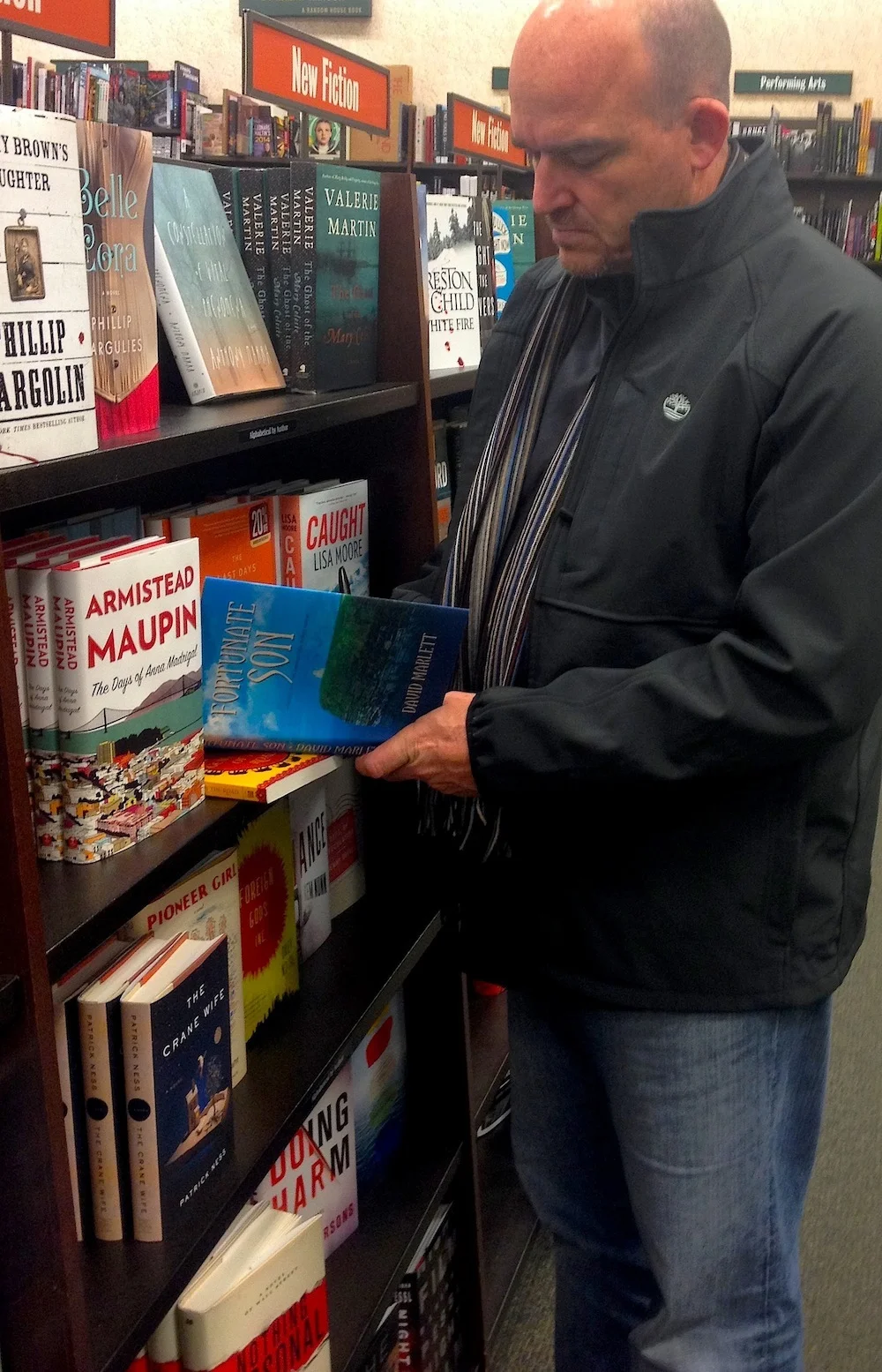BOOK CLUB GUIDE: FORTUNATE SON
I am sincerely honored that your book club has chosen to read and discuss my novel, FORTUNATE SON. Due to a number of clubs seeking a set of suggested discussion points/questions, my publisher asked that I post them online. Many of these points/questions have been drafted by other book clubs. If you have additional ones that might be helpful to other book clubs, please contact me here. In addition, I have been honored to participate live with book clubs via Skype, and am open to do so with your club as well. If you have an interest in that, or other questions/comments for me, please contact me. Finally, I would be grateful if the members of your club might post reviews/comments regarding FORTUNATE SON on Amazon at: www.amazon.com/gp/product/1611881595
Leargas sa Dorchadas, David
Warning: PLOT SPOILERS BELOW! Only for those who have read the book.
General Questions/Discussion Points:
What was the role of the Catholic persecution in shaping Jemmy's outlook on life?
What do you think about Mary Sheffield? Do you pity her, dislike her, or understand her? Did your opinion change once you come to the conclusion of the book?
What do you think about Charity Heath?
What do you think of Fynn Kennedy, and his loyalty to James?
Why did Richard do what he does to Jemmy? Why not take the more fatal route?
What must the indentured servitude have been like for Jemmy, and how did it shape him as an adult?
What do you imagine Laura's mother said to Laura regarding James, leading up to Laura leaving for England? (A big deal in those days for Laura to travel like that.)
As Sean and James were such good friends, what do you think about Sean's betrayal of James at the London murder trial?
What do you think about Daniel Mackercher, his motivations, his drive, etc?
What did you think of the reveal near the end? Did you suspect it earlier?
Why do you think Mackercher didn't kill Richard in the end (as he no doubt could have without repercussions)?
On that thought, why do you think James let Richard escape prosecution and go into exile?
Why did James do what he does with the estate at the end of the book?
What would you have done, if in the same situation, where no one would know the truth?
Legal-Themed Questions/Discussion Points:
What was the role of James' criminal trial in London on the outcome of the civil trial in Dublin?
Why do you think Richard had signed the waiver in the London court that allowed his attorney John Giffard to tell that London court about his work for Richard?
Was the Dublin three judge panel right in allowing Giffard to testify? Why?
Mackercher spent a considerable part of his wealth preparing for and conducting the major trial. If revenge for Juggy was his primary goal, why did he not simply kill Richard and Captain Bailyn himself, thus saving the money and time?
This story was discovered by the author in a book on legal ethics (during his first semester of law school), when a brief reference was made to the dynamic cross-examination in the case of Annesley v. Anglesea (re-enacted on page 315 of FORTUNATE SON). The key ethical question was: "Should an attorney represent a client whom he knows to be guilty or to be extending a false claim?" What do you think?


